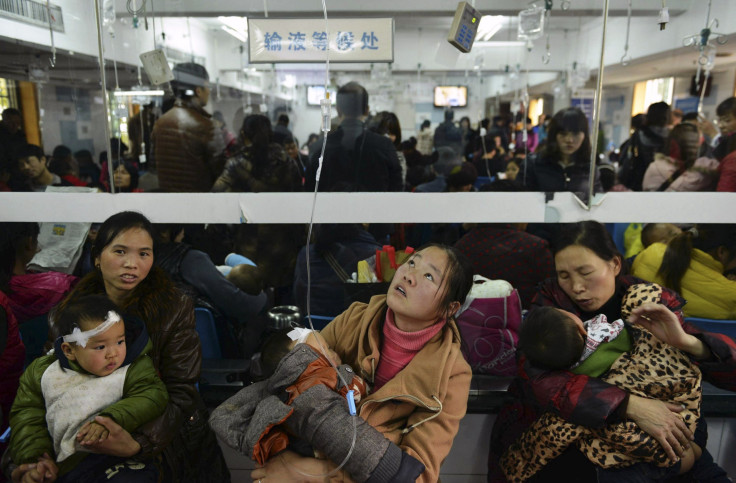China's Medical System Strains Both Patients And Doctors As Hospital Violence Becomes Increasingly Common

A spate of hospital stabbings and violent confrontations in hospitals across China’s mainland has shed a light on the straining medical profession. A recent event where a doctor leapt to his death in an apparent suicide has sparked concern among doctors who believe that medical workers are being “overworked and underpaid” and face occupational hazards that didn’t previously exist.
Zhang Shilin, a urology surgeon working in Shanghai’s renowned Fudan University Shanghai Cancer Center, jumped from the building earlier this week, shortly after being treated at a different hospital for depression. As officials investigate the suicide, speculation over what drove the doctor to take his own life has brought attention to the pressures of being a doctor in China.
While being a doctor has never been considered an easy job, China’s medical system, already in great need of reform, has put increased pressure on hospital workers and doctors to accommodate disgruntled patients who are fighting for access and affordability. Hospital funding is unpredictable, with government monies often determined by varying factors like the number of patient visits and medical tests conducted and medication sold. In some cases, overextended doctors might see up to 100 patients a day.
An independent survey released by Horizon Research Consultancy Group last October found that about 81 percent of survey respondents said it was difficult for them to see a doctor, with more than half saying that it is more difficult now that it was four years prior. In terms of affordability, 95 percent of those surveyed said health care was expensive, with 87 percent saying costs were higher than four years earlier.
Growing frustration on the patient side over accessibility, affordability, quality of care, and in some cases corruption -- a result of government funding distribution -- has created tense situations in hospitals that have become increasingly violent. Patients dissatisfied with care have expressed their discontent directly to doctors or other hospital employees, adding stress for hospital workers. Just last week, three doctors in Shanghai were injured when a machete-wielding patient attacked them. While the reason behind the 50-year-old cancer patient’s knife attack is still under investigation, there is no doubt that hospital violence is on the rise.
Last November, a man in eastern China who was unhappy with an operation he received returned to the hospital in search of his doctor. Unable to find him, the man fatally stabbed the head of the department and injured two others. That was the third attack on doctors or hospital employees that week. In another case, a man in northeast China took his own life after stabbing a doctor six times during an altercation that began as a disagreement over a complication from his arm surgery.
Regarding the suicide of Zhang Shilin, friends of the doctor suggested that the added strain from patient conflicts may have been a contributing factor to his depression, which ultimately led to his death. Zhang’s classmate, Song Dianwen, an orthopedic specialist at Shanghai Changzheng Hospital, made the connection in a recent blog post. “I don’t mean to provoke doctor-patient conflict. I am merely hoping for more understanding on the work pressures that doctors, especially surgeons, are burdened with,” Song wrote.
After Song’s testimonial, several doctors came forward on social media to request that the public show greater sympathy toward doctors under stress, much of which is a result of a poorly structured health-care system. “[Doctors] bear long-term burdens, both physical and psychological,” one Xiamen-based urology doctor, Pan Zhanhe, wrote on his profile. “[Doctors] are anxious, depressed and lack security.”
© Copyright IBTimes 2024. All rights reserved.





















